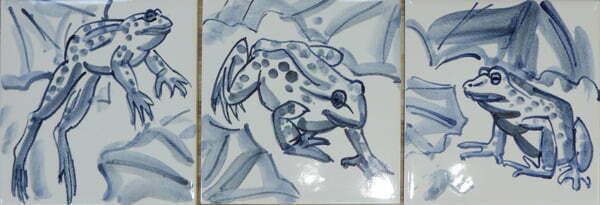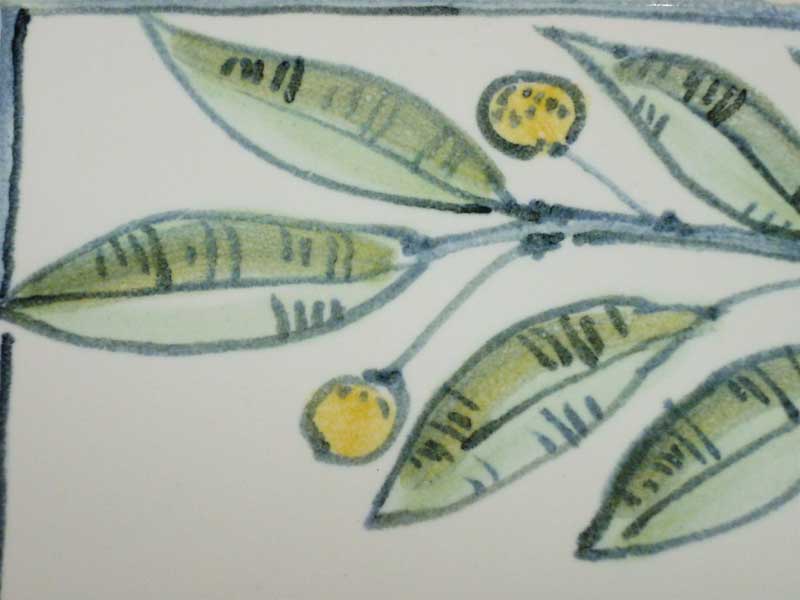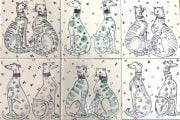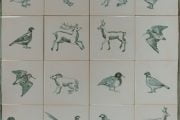Tin glaze, also known as ‘delft’, or majolica, the liquid glaze used on the tile has an opacifier e.g. tin oxide, added to an otherwise transparent glaze to make it white and opaque (other materials can be added to produce various off white tints). This glaze is poured over the tiles and allowed to dry. The unfired powdery surface is then painted by hand using mixtures of oxides and glaze stains: copper for green, cobalt for blue, manganese for purple/ pink/brown etc. The chemical make-up of the underlying glaze can further vary the colours e.g. copper can be made to produce brilliant turquoise as opposed to a deep green. After decorating, the tiles are fired fixing the colours and the white glaze permanently.

Example of tin glaze colour tests on a particular recipe glaze.
Click on images for a larger view Click on the i bottom right of larger images for tiles info
- Hob panel tin glaze. tiles Pumpkins
- Artichokes Delft tiles
- Mermaids ‘delft’ hand painted tiles
- Hand painted frogs in grey blue on white
- Mythical beasts hand painted’delft’ tiles
- kitchen splashbackmythical beasts
- Farmyard and other animals- single ‘delft’ tiles .
- Deep blue bird+ leaf tiles
- Hand decorated tin glaze.Squares and leaves.
- Alternate tiles green squares and squares = leaves.
- A small traditional blue and white tile panel
- Based on traditional Black work embroidery patterns.
- Designed for a Swedish textile expert, based on English ‘blackwork’ embroidery.
- Artichoke Green on cream glaze tiles.
- Single tile designs with different coloured glazes and decoration and borders.
- Tin glaze tiles hand painted, multi colours with myrtle leaves.
- Cats + dogs hand painted tiles.
- Chicken-Traditional ‘delft’ blue and white hand painted tile.
- A tiled dining table top brush decorated with British fruits- on cream ground.
- Fern tiles splashback
- Part of a series of ‘chinese style’ brush decorated tile panels for a bathroom.
- Kitchen stove panel. Traditional blue and white tiles.
- Individual game birds and animals green on cream
- Gamebirds. Cream + brown tile splashback.
- Bordered cream tin glaze game birds and animals.
- traditional clay blue and whites’ small birds’ tiles
Click on images for a larger view



























You must be logged in to post a comment.